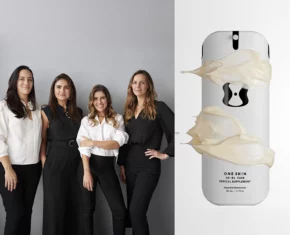Giving gifts to others is a way to show them that you care…but they can also be a sign of something else. Relationship expert Ellie Burrows calls out the sometimes-hidden agenda behind the art of generosity – and the kinds of gifts that are of true value.
File me under “giver.”
I get high off of generosity. You name it, I love to give it: time, thoughts, money and presents. Especially presents.
Historically, I have been very proud of this aspect of my personality. It feels good to give. Ask any of my friends and lovers and they will tell you that generosity is one of my core values. It’s as obvious as my green eyes and brown hair.
Someone who is generous of spirit is lauded, and rightfully so. There is so much need in this world; those who can give, absolutely should. But for the first time in my life, I see a major problem with how this particular attribute shows up in my life. And I’m feeling an enormous amount of relief around this discovery.
I send people flowers on their birthdays (also sometimes Mother’s Day, Valentine’s Day and anniversaries). New apartment? Flowers. New job? Flowers. New baby? Flowers. New tooth? Flowers. Totally kidding on the last one, but maybe if it was “real” surgery like wisdom teeth extraction or something that involved stitches, I’m sure you can guess… flowers.
While one could argue that the above paragraph sounds like a classic compulsion case, that’s not what is really going on. There’s something much more fascinating at play:
There is serious rigidity in my generosity.
Rigidity. Generosity. Those words feel almost oxymoronic, don’t they? Somehow through the lens of rigidity, my beloved attribute of generosity all of sudden feels a bit icky, maybe even trite.
Every month on The Chalkboard, I post something and call someone out on his or her choices in relationships and love. This month, I’m calling myself out.
So here are my cards. These are the contributing factors that lead me to be to be stringent in giving stems.
“That’s how I was raised.” (#nurture)
That’s the sentence equivalent of a closed door. Think: non-starter, not up for discussion, that’s just the way it is. Inquiry and curiosity need not apply. But I love questions, so I’m going to open that door and walk through it. For better or worse, I grew up in a house where I learned that giving was how one demonstrated love. That deserves further exploration – but not here. Probably best for a small room with a couch and trusted professional.
I’m dealing with the need to be liked. (#anxiety)
Aren’t we all? Isn’t that why social media is so tremendously successful? We want to be seen. We want to be cherished. But in the case of my flowers, it’s less about approval and more about appreciation. I appreciate someone with flowers and in turn he or she will appreciate me for being thoughtful. Therefore he or she likes me and considers me a good friend. A two-birds one-stone gift – like when a lover gets you lingerie – everyone wins.
Friends might not know how much I love them if they don’t have a physical symbol to remind them. (#insecurity, also #projection)
Real friendship is rooted in love, which is eternal and intangible. It can’t be made tangible by a bunch of colorful and nice-smelling cells with an infinitely short lifespan. Mic drop.
See, it could be argued that I send flowers from fear, not from love. When it comes to interacting with our beloveds, I’m sure we can all relate to a version of these limitations: nurture, anxiety, insecurity and projection.
I read The Five Love Languages more than a decade ago. The premise of the book is about learning how you love and how your beloved loves back. Basically you have your own love language, your partner has his or her own love language, and fluency in both is ideal for a harmonious relationship. I liked to be loved through “Words of Affirmation,” and also “Physical Touch.” But I like to love people in my life as if their preference is “Receiving Gifts.” Ridiculous. Who am I to assume everyone wants to be loved in that way? (FYI, the other two languages are “Quality Time” and “Acts of Service.” It’s a great book. Consider reading it. And while we’re on the topic, maybe don’t read it. It’s up to you to decide how you want to love and be loved, free from categorization.)
I vehemently believe that life is a dance amidst polarities – light and dark, pleasure and pain, and of course, fear and love. I write about this a lot. Where we fall between extremes tell us a lot about who we are and how we are occurring in our worlds. I’d like to draw your attention to a nugget of wisdom that’s been helpful for me and maybe you will also find it useful. Although I’m not a practitioner, it comes from the Kabbalistic tradition and I think it’s kind of beautiful.
On the Tree of Life, kindness is opposite judgment. Although I usually loathe the latter word, in this particular context I like it. This judgment is about boundaries – about ensuring a push/pull in all that we do. If we give without awareness, without clear intentions, without discernment, without boundaries, then we can lose ourselves in our giving.
So when it comes to generosity, I’m still learning to dance. This week it was a friend’s birthday. A confluence of things like forgetfulness and commitments (also known as being human) lead to the inability to get flowers to her doorstep on her big day. Initially, I was hit with a kind of weight that felt like guilt, but it quickly passed. And then I felt something else. I felt empowered. Empowerment that can only come from a lesson learned.
I picked up the phone and I was present, simply wished her a happy birthday and told her I loved her. That kind of love, the real stuff, doesn’t wilt and die so easily.












